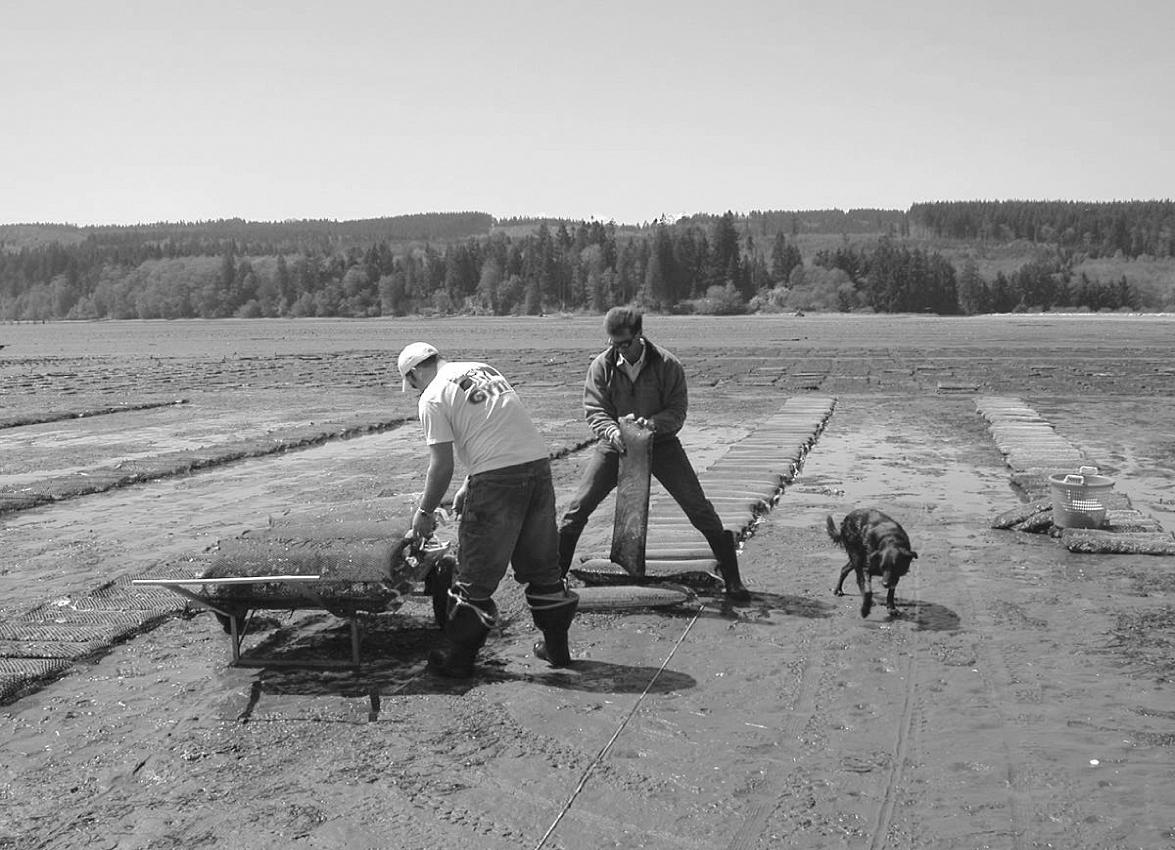
Hedgecock, Crossbreeding Pacific oysters for high yield
This project addresses two significant areas within the Pacific oyster farming industry: standardized yield data and hybrid oyster seed improvement. We discern the necessity for accurate and consistent yield data as it forms the cornerstone in measuring progress within the industry. In addition, we are actively investigating the potential benefits of hybrid oyster seeds versus currently utilized varieties. Engaging early results indicate that these hybrid seeds may offer enhanced performance.
Objectives:
- To make and maintain new inbred lines from pedigreed MBP families, using brother-sister matings and microsatellite DNA markers to ensure pedigree
- To test the performance of hybrids produced by factorial crosses of these inbred lines, using the MBP protocol for assessing family yields with replicated bag culture
- To develop and test methods for cryopreserving oyster embryos and early larvae to facilitate regional research
- To correlate metabolic performance or patterns of gene expression of hybrid larvae with growth to market size, to verify the major hypothesis that elite inbred lines might be identified without need for extensive field-testing
- To map lethal genes and heterosis QTL in inbred lines and to use markers associated with them to select optimal broodstock from within and among inbred lines
Project Summary
| Duration: | 2 years |
|---|---|
| Funded Date: | 09/01/2001 |
| Funding level: | $214,008 |
| PI: | |
| Advisors: | |
| Location: | California - CA, Oregon - OR, Washington - WA |
| Species: | Oysters, Pacific oysters |
| Topics: | Culture, Genetics, Hatchery |
